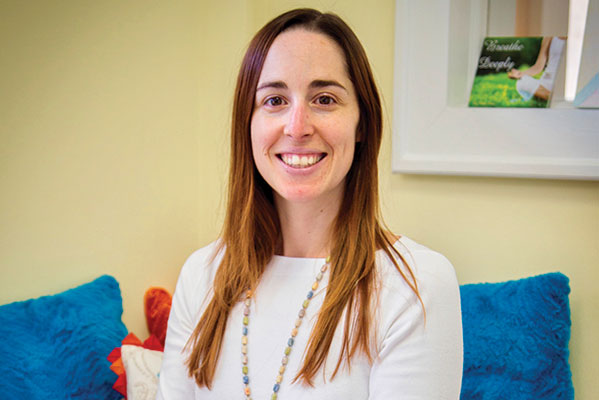Making Sure the Kids Are All Right
How to Help Your Children Adjust to a Loved One’s Cancer Diagnosis
by Crystal Zelman, LCSW, CCLS, RPT
While wanting to shield children from tough stuff like cancer is a natural inclination, I would like to propose an alternative approach. Rather than shelter them, prepare children with the tools they’ll need to walk through their thoughts and feelings around a loved one’s cancer diagnosis.
Children who grow up in families that practice open, honest, age-appropriate communication are being given the gift of positive modeling. When parents model healthy coping tools, such as talking about their feelings and experiences, children notice and learn that it’s OK to trust, rely on others, ask for help, express their feelings, and be open and vulnerable. On the other hand, when parents model secret-keeping and minimal expression, children also pick up on those cues, and they begin believing they must hide their thoughts and feelings as well. This cuts them off from potential support, comfort, and answers to their questions from the adults in their lives.
Children can and do adjust to a loved one’s cancer diagnosis. They figure out how to navigate changes in schedules, caregivers, time with friends, extracurricular activities, roles, and responsibilities. While children may experience a range of different emotions, such as sadness, fear, anger, and hope, when dealing with a loved one’s cancer, it’s the task of the helpful adults in their lives to offer them positive ways to cope with these emotions.
Children can and do adjust to a loved one’s cancer diagnosis. They figure out how to navigate changes in schedules, caregivers, time with friends, extracurricular activities, roles, and responsibilities.
Give them permission to talk to their teacher, guidance counselor, or friends. Ask if they’d like to pick out a new journal or sketchbook. Invite them to go for a walk or a hike with you. Give them limited, either/or choices to help them feel more in control. Offer to talk with them, listen to them, and answer their questions. Invite and encourage age-appropriate expression through pretend play, art, or open dialogue.
Children also benefit from being told what they can expect. For example, if a parent is going to have an inpatient hospital stay, it’s important to
- explain the upcoming changes in routine and caregivers
- share ideas about staying connected with their loved one (for example, phone conversations, video chats, or hospital visits);
- prepare them for visits through the senses (what will they see, hear, or smell; what can they touch or not touch);
- offer them the option to bring an item (such as a card or stuffed animal) to their loved one;
- and give them a choice about when, or whether, to visit.
Through honest and open communication, you can use this experience with cancer to strengthen the parent-child relationship, give children a sense of inclusion and belonging, bolster your child’s ability to cope with life and their feelings, and, most importantly, teach your children that they can handle difficult things that happen in life, including their own feelings.
Crystal Zelman, owner and clinician at Morris County Play Therapy in Denville, NJ, is a registered play therapist, licensed clinical social worker, and certified child life specialist. She has a strong background in supporting children and adults through grief, facilitating the arts and crafts grief groups at Camp Clover, a children’s bereavement day camp in Warren, NJ. She is also a part-time lecturer at Rutgers University in New Brunswick, NJ, and a KRI certified Kundalini yoga instructor.
This article was published in Coping® with Cancer magazine, March/April 2017.


